- Best Drive-Thru Food Pantry
- Best Mexican Breakfast for Five Dollars
- Best Botánica on 26th
- Best Environmental Justice League
- Best Landlocked Fried Shrimp
- Best Shopping Center That is Not a Big-Box Store
- In Memoriam: Raspa Man Don Lupillo
It was a tough year for Little Village in many respects.
Due to the pandemic, 142 people have passed away. Street vendors who people thought were immortal died. A negligent implosion of a smokestack had vulnerable people coughing and in pain. Shootings went up, with twenty-four reported homicides so far this year as of press time. Struggling businesses were sent over the edge, forced to shut down or retire early, and storefronts that were empty last year because of high rents remain empty today. Some responded to the civil unrest with violence, others with empathy. On top of it all, profit-driven developers planted their flags in huge plots of land when nobody appeared to be looking.
What this section shows, however, is that there are still things to celebrate, there are still people helping, there are still businesses giving it their all, there are still youth planning a better future, there is still hope.
As immigrants, community members have learned that when times are tough to always keep it moving. But a concept that this community is still learning is that it can’t keep running forever. It can’t keep running from ICE, it can’t keep running from gangs, it can’t keep turning its cheek to corruption, it can’t keep evading the voting booth, it can’t keep giving up its sense of place.
We’re learning to plant roots, to stand up for ourselves, to face our fears, to question those in power, to create mutual aid when we lack safety nets, to organize, to create solidarity, and to look within. (Jacqueline Serrato)
Neighborhood Captain Jacqueline Serrato is the editor-in-chief of the Weekly and co-manages the largest neighborhood page on Facebook.
Best Drive-Thru Food Pantry
Pan De Vida Food Pantry
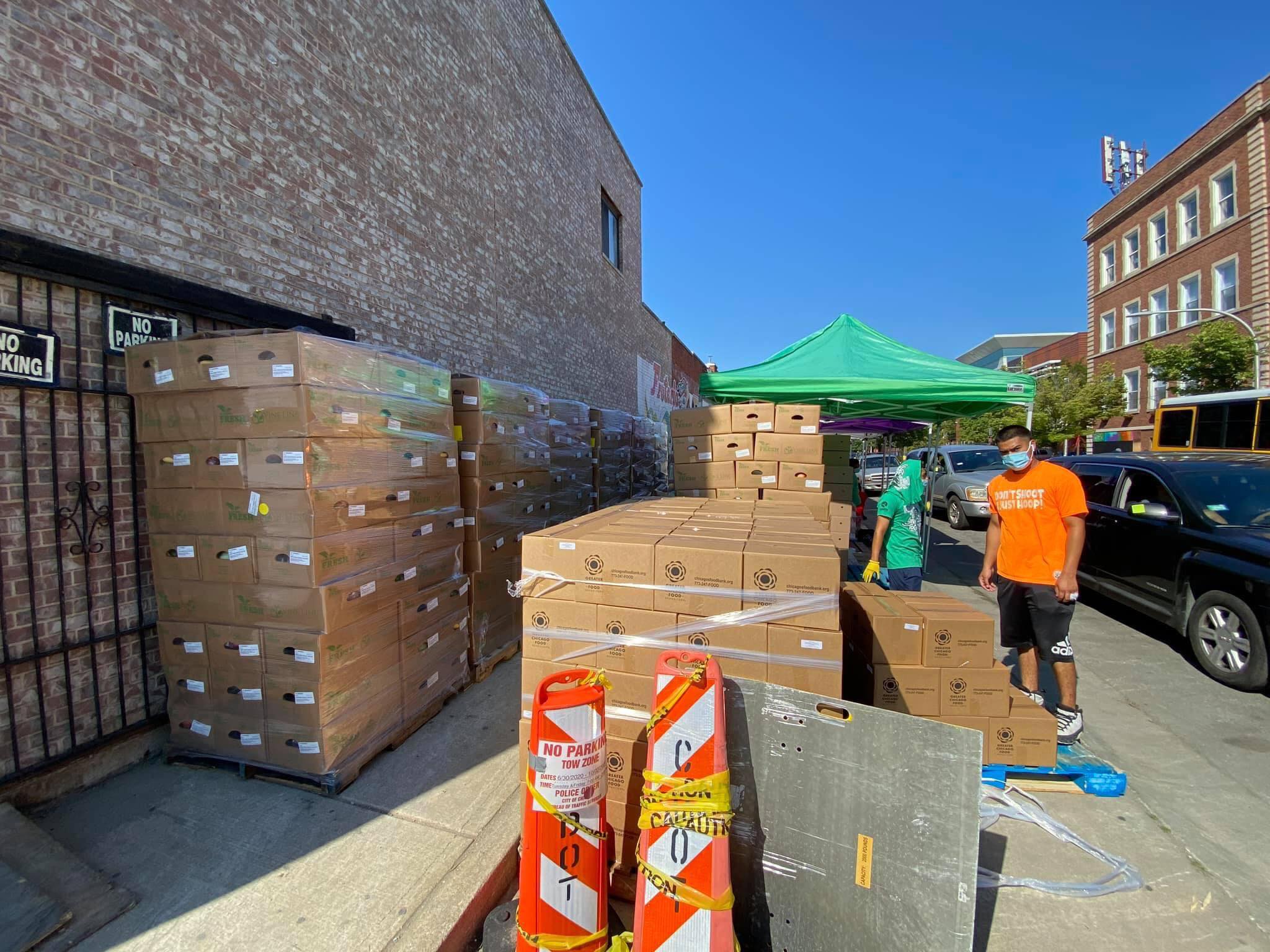
For generations, churches in Little Village have organized food pantries to help feed families on the West Side, and in the midst of a global pandemic, New Life Church’s Pan De Vida food pantry is feeding thousands of households a week. What makes this distribution center stand out is not only the volume of food pallets provided by the Greater Chicago Food Depository, or the number of youth staff who help run the operation, but its drive-thru model that minimizes human contact and, thus, the spread of COVID-19.
Twice a week, on Tuesdays and Fridays, cars start lining up first thing in the morning along traffic cones on South Lawndale Avenue, from West 27th Street down to West 31st Street. Working out of the building across the street from the church, which was previously a tiendita with a mural of an Aztec warrior (that’s still up)—and whose owner retired when the pandemic shut everything down—food pantry staff load cardboard boxes into car trunks and back seats. Like a production line, workers and volunteers wearing face masks take turns serving each vehicle and sending it on its way.
The federal Paycheck Protection Program and individual donors help the church cover the costs of the pantry. The operation is directed by Abelardo Colin, who like many of the other young staffers, developed leadership skills at New Life through its mentorship and street intervention programs; the pantry also counts on regular volunteers from La Villita Community Church, the nonprofit organization Enlace Chicago, and other neighbors. Their hope is for the food pantry to become a permanent fixture and to continue serving the community holistically. (Jacqueline Serrato)
Pan De Vida Food Pantry, 2701 S. Lawndale Ave. Tuesday and Friday, 9am–12pm. (773) 762-0270. facebook.com/pandevidalavillita
Best Mexican Breakfast for Five Dollars
Atardecer Acalpuqueño
Every weekend, Atardecer Acalpuqueño, a hidden gem in the historic Marshall Boulevard neighborhood, attracts immigrant families with its authentic rural dishes and handmade tortillas. The unassuming parking lot on Cermak tends to be full on the daily, especially by early risers who want to take advantage of the breakfast specials that end at 11am.
The family-friendly restaurant boasts a special menu with eleven meals for five dollars each. While these traditional dishes come without meat, they taste much more expensive than five bucks. Or maybe it’s just the cultural nostalgia because it feels like your mom’s or grandmother’s cooking.
The eggs can come scrambled with salsa del molcajete or salsa de arbol for more spiciness, or mixed with tomato, jalapeño and onion a la mexicana, or with fried potatoes, or with cactus and frijoles de la olla. The combos are many, and for a few dollars more, you can add chorizo, cecina, or steak. The yellow corn tortillas bring it all together.
Pre-pandemic, the older folks liked to lounge in conversation and stick around for the coffee, café de olla that is boiled in a clay pot and infused with cinnamon and sometimes other spices. And when coffee’s all you want, there’s a selection of pan dulce if you change your mind.
Whatever your mood, this Guerrero-style restaurant is always a top contender. (Jacqueline Serrato)
Atardecer Acalpuqueño, 2906 W. Cermak Rd. Monday–Thursday, 8am–5pm; Friday–Sunday, 8am–6pm. (773) 277-7198
Best Bótanica on 26th
Botánica La Guadalupana
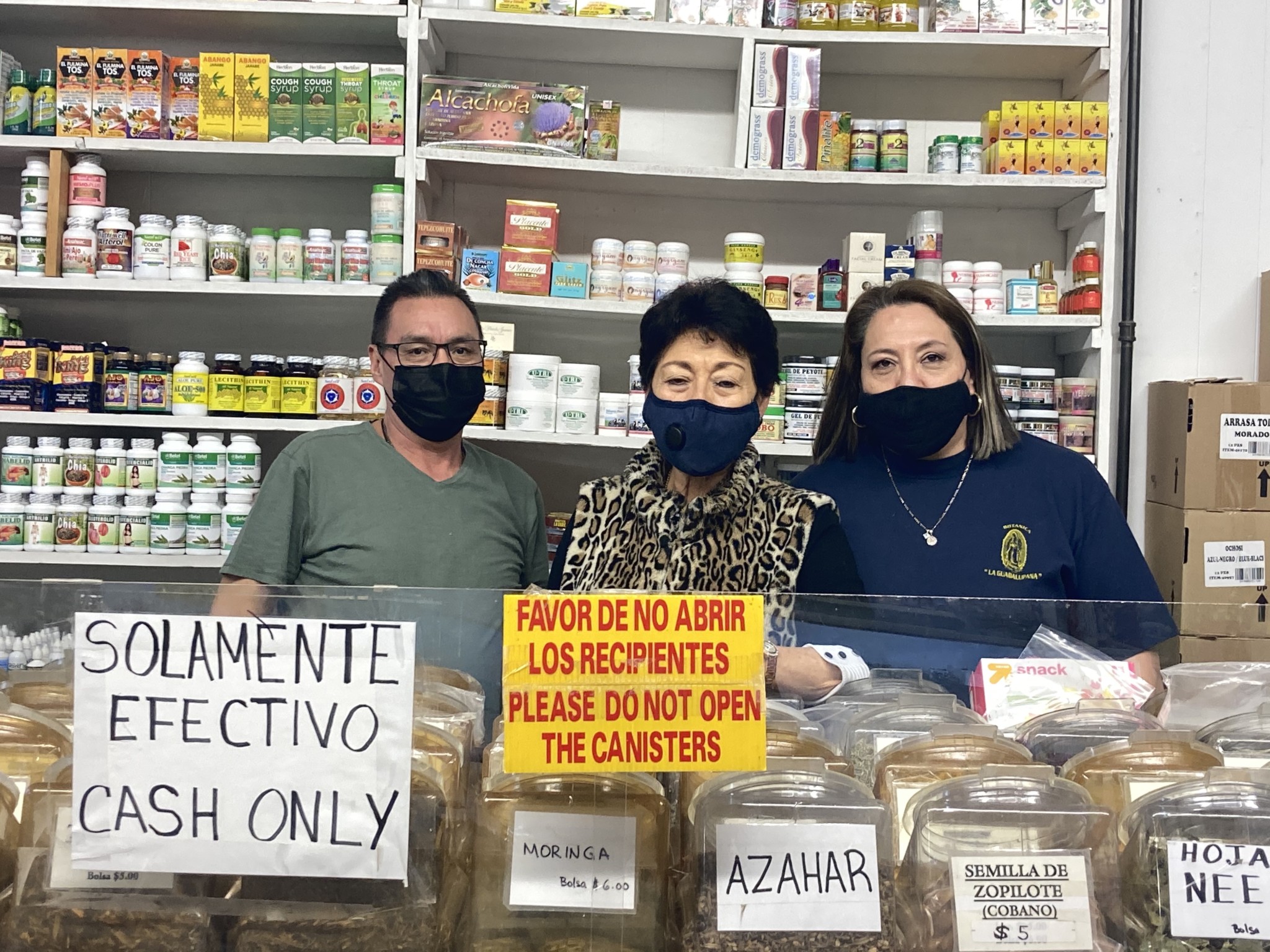
Owner Lidia Santoyo welcomes customers to her botánica with a gleeful attitude. Although she is wearing a mask, it is easy to guess that she is smiling underneath it. The botánica boasts of dozens of medicinal teas and supplements for the health and wellbeing of those who come through its doors.
Santoyo set up shop in Little Village more than thirty years ago. Hailing from Salvatierra, Guanajuato, she arrived in Chicago with an herbalism and alternative medicine degree. She was not allowed to put her degrees to use because they were not recognized in the United States, and in order to practice alternative medicine she would have been forced to study her field all over again. However, she knew the importance of her work: “In Mexico, people for generations have used teas and herbs to heal. I loved it, and I began to study [them] because it’s not just [about] working with them but knowing what they are good for.”
Despite not being a resident of Little Village, one day upon visiting the neighborhood she decided that 26th Street would be the perfect place to continue to use her skills and put her passion to work for others. “What inspired me to set up shop here was that thirty years ago, this street was mainly paisanos, mostly Mexican, and I liked it because since I used to do this in Mexico, I thought I could help the community.”
During the pandemic, Santoyo noticed that residents of La Villita are leaning into what their grandparents and parents already knew: that plants can heal. Throughout the pandemic, Santoyo stated, “One thing I sell the most is the products that help the immune system, specifically the ones that help the lungs, the throat, so I have had customers ask for that because a lot of people don’t have insurance, and these herbs and supplements have helped them to heal.”
Santoyo is proud of the work that she does. Her focus is not the limpias, hechizos, or amarres as other botánicas do, but her aim is to help people regain their spiritual, physical, and mental health. “People who come here are used to the plants, to the natural supplements, and when someone needs something esoteric, we sell them the products such as candles, santo sculptures, lotions for love, money, and luck,” she said.
If you are looking for teas, candles, incense, herbal supplements, aguas de colonia, evil eye charms, and even pheromone-containing lotions to attract your crush, this is the place to come to. (Laura Ramírez)
Botánica La Guadalupana, 3842 W. 26th St. Monday–Saturday, 10am–7pm; Sunday, 10am–5pm. (773) 522-7430
Best Environmental Justice League
Little Village Environmental Justice Organization
I first heard about the Little Village Environmental Justice Organization (LVEJO) when I was a sophomore at Greater Lawndale High School for Social Justice. All their work around the neighborhood has always been astounding. LVEJO members and their community keep Little Village residents informed about and well-represented in the constant fights against pollution.
In class we explored “The Poisoned Onion” project, which LVEJO was part of and which studied lead in the soil and Superfund sites in the city: places where companies would dump their waste and it’d be too toxic to be around. So the following year, I joined the Environmental Justice Club, a collaboration between my school and LVEJO, admiring the work other students had done a year prior with the #NoDieselLV project. At that time, we discussed the underlying issue of pollution from BWAY Corporation in the neighborhood, and persuaded all four school principals at the Little Village Lawndale High School campus to work with Big Green Chicago to get the school a garden.
In a sense, just being a part of that club was a window to show me what a teenager of color could do for their community. Whether it was taking field trips to the Farm on Ogden (see the North Lawndale section for more) or The Plant in Back of the Yards, the group exposed young minds to other progressive environments. LVEJO is a real example of unity, making a difference, and a positive change in a community.
They were able to get the Crawford coal power plant shut down. They fought against the expansion of the Unilever factory that is located by the Zapata Elementary School (unfortunately, that was a battle lost) and continue to organize town hall meetings, like one on January 16, 2020, to hold the company Hilco accountable for its failures at the Crawford power plant demolition site, which resulted in the neighborhood being coated with dust and the death of worker Reynaldo “Rey” Grimaldo.
Aside from working against invasive, polluting companies, LVEJO also creates green spaces within the community. La Villita Park was its biggest accomplishment, as the organization turned a huge Superfund site in front of Cook County Jail into a community green space. Furthermore, LVEJO led the transformation of a fenceless site used to deposit leftover oil barrels into a small community garden, Semillas de Justicia Garden.
I’m still amazed by what LVEJO has done and still does. During the pandemic, its efforts against Hilco polluting our air have been tireless, and so have its finding ways to support its community during these hard times, by supplying mutual aid funds for families who are in need of groceries, and by cooking and delivering food to those who need it. (Sylvia Merie Meraz, Yollocalli Arts Reach)
Little Village Environmental Justice Organization, 2445 S. Spaulding Ave. (773) 762-6991. lvejo.org
Best Landlocked Fried Shrimp
Troha’s
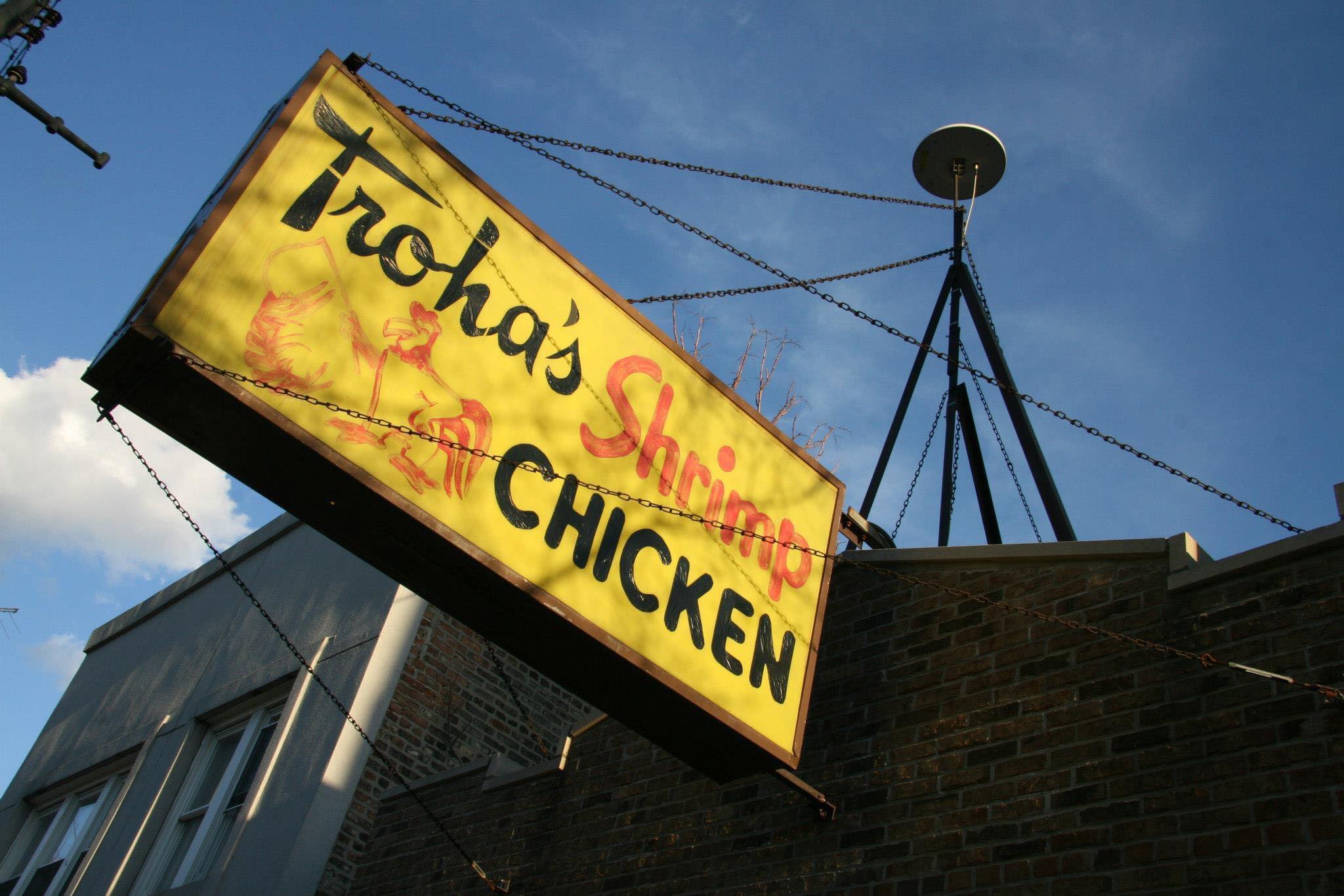
Maintaining a small business in the same location for 103 years will make you a neighborhood institution. Frying delicious, flakey shrimp for four generations of local diners will do that for you, too. Troha’s regulars, of which there are plenty, are quick to sing its praises, with many saying that the restaurant has been a tradition in their families for decades. So how is it exactly that a landlocked Lawndale restaurant came to fry some of the best seafood in Chicago?
Good value is part of the answer: Troha’s was founded in 1917 on the fine principle of selling a bowl of chili and a stein of beer for a nickel. However, the Depression caused prices of chili meat to rise, so they introduced smoked seafood in 1935, and after a visit to New Orleans, the owners decided to start frying shrimp. The current owners, now in their fourth generation, still pay attention to value. You’ll notice it with the lightness with which you reach for your wallet when it’s time to pay for that half-order meal, hand-breaded and cooked to order for only ten dollars.
It’s hard to overstate the importance of a community beacon like this. Legacy businesses like Troha’s act as third spaces that are integral to the exchange of ideas and fostering growth and community bonds in neighborhoods, and are especially important in areas where locally owned small businesses are few and far between. It’s difficult to manage a small business for over a hundred years anywhere; Troha’s has helped Lawndale neighbors weather the storms of white flight, disinvestment, and now, COVID-19 storms with them. (Molly O’Mera, The Real Chi: Free Spirit Media’s Community Newsroom)
Troha’s Chicken and Shrimp House, 4151 W. 26th St., (773) 521-7847. Sunday–Monday, noon–8pm; Tuesday–Thursday, 11am–8pm; Friday–Saturday, 11am–9pm. chicagoshrimphouse.com
Best Shopping Center that is Not a Big-Box Store
Discount Mall
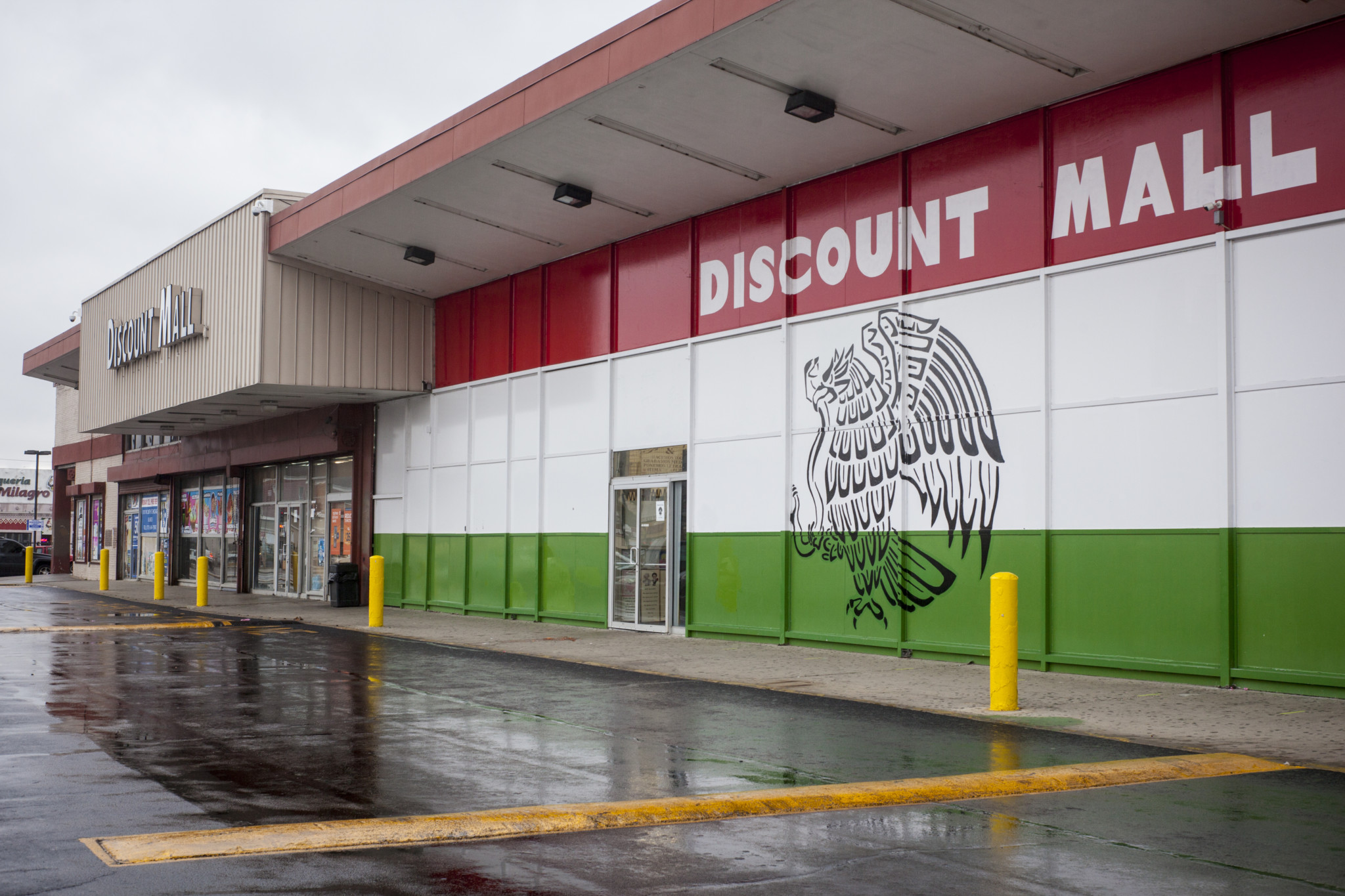
With so many shopping options along the 26th Street business corridor, Discount Mall remains the go-to place for just about anything—but its future is threatened by developers.
Discount Mall is a massive cultural hub in Little Village, where you could find the best deals on toys, shoes, Western wear, music, and jewelry. What you find here are not things you are likely to find at big-box stores like Target, rumored to be a potential tenant that a developer will lure to the plaza. (Should you need a Target, Little Village is already right in between two of them.)
Discount Mall’s façade displays a large mural of the Mexican flag. Having a one-stop shop where you can find rare and one-of-a-kind handmade goods, while being culturally relevant, is what has contributed to Little Village becoming the second-largest tax-generating district in Chicago, next to the Magnificent Mile. The Magnificent Mile downtown is not a shopping district developed with poor or working class families of color in mind, but this one is. For many people in the neighborhood, Discount Mall, previously recognized as the Best Place to Buy Literally Anything in 2014 BoSS, is a place that could in some ways replicate a mercantil like the ones found in Mexico. It is a place that lends an opportunity to learn how to create and develop a small business and become entrepreneurs in the United States.
Out of the seventy-seven community areas of Chicago, we have one of the largest populations of children. As a first-generation Mexican-American young Latina growing up in the nineties in Little Village, I would visit the mall almost every weekend to immerse myself in my culture without having to leave the neighborhood. It served as a transition and getaway from everything that would force-feed the need for me to assimilate, and I could walk in and feel the dignity, honor, and pride of coming from a culture made of and by people with faces that looked just like me. In the same way, Discount Mall serves as a transition into life in the United States for hardworking people looking to have a better life and opportunities for their family.
Discount Mall is where I purchased my first mixtape, bought some of my first hoop earrings, purchased my first pair of Dickies, my first Mexican flag, paisley print bandanas, my first Old English belt buckle, my first gold name plate and where I could get lost while my mom picked up un mantel or cobijas San Marcos, embroidery yarn, tortilleros, and, of course, tacos. You can purchase snacks and foods from the street vendors that surround the best shopping center in Little Village.
Since it was bought earlier this year, however, its future is uncertain. Organized groups like Juntos Por La Villita, Mi Villita, and Únete, among other young activist groups and neighborhood residents, have spent their time educating neighborhood people about gentrification. Small vendors have rallied outside the Discount Mall with the goal of pressuring owner John Novak and 12th Ward Alderman George Cardenas about their intentions for the future of the space, both of whom have said they want to attract corporate retailers.
Some of many of the puestos where I recommend you shop and help preserve the space that made many like me who we are today include: La Esmeralda (stall #801), Chicago Pets (stall #113), Sophie’s Shop (stall #306-307), The Bridal Shop (stall #419), Cerrajeria (stall #230), Ceaser’s Music of Illinois (stall #323-324), Tino’s Mens Wear (stall #420), D & J Jewelry (stall #207). (Gloria Talamantes)
Discount Mall, 3115 W. 26th St. Monday–Saturday, 10am–7:30pm; Sunday, 10am–7pm. (773) 376-3700. discountmall.business.site
Read an In Memoriam for La Villita’s Raspa Man Don Lupillo here



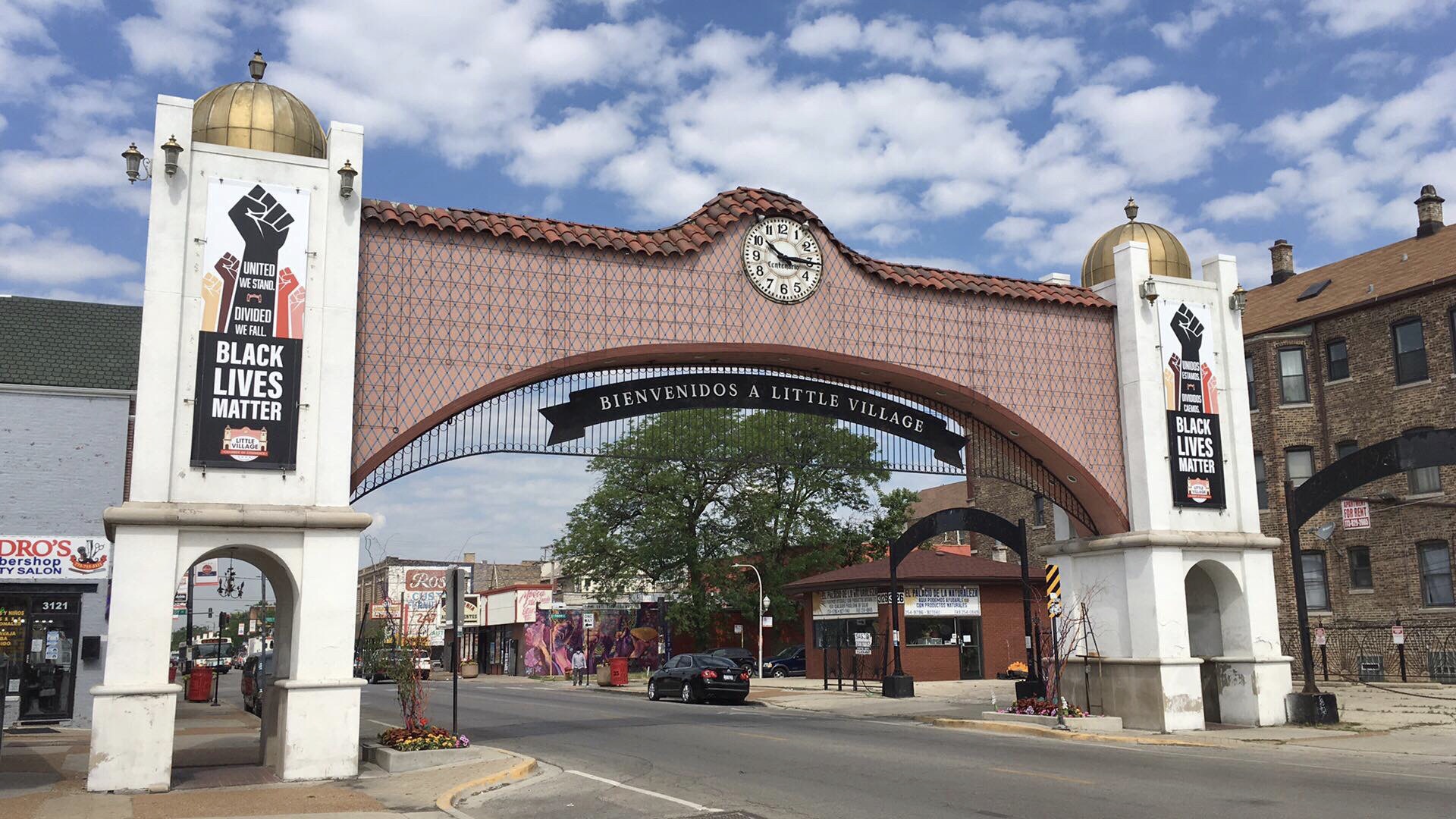
Great articles. Thanks for reporting locally. The articles were informative and enjoyable to read. Keep up the good work. By pressing forward we are creating a stronger community.